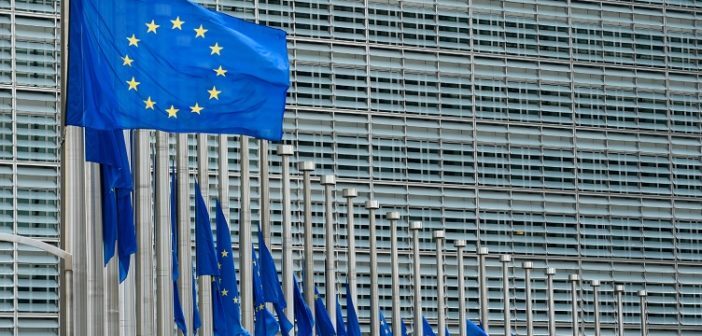A European Commission spokesperson said that the EU’s executive body was giving the Amnesty International report on Israel accusing Israel of apartheid “all due attention”, writes Yossi Lempkowicz.
The report published Tuesday (1 February) by the London-based human rights group accused Israel of subjecting Palestinians to a system of “apartheid” founded on policies of “segregation, dispossession and exclusion.”
Amnesty said Israel was enforcing a system of oppression and domination against Palestinians “wherever it has control over their rights”, including Arab citizens of Israel, Palestinians in Israeli-occupied territory and refugees living abroad.
Asked for a reaction at the daily EU Commission briefing, EU spokesperson for foreign affairs, Peter Stano, said that the EU gives “all the due attention” to Amnesty’s report “as we do in the case of all the other stakeholders or NGOs.” He added that the respect for international law and international humanitarian law by state- and non-state actors in the region are “a cornerstone” for peace and security in the Middle East region.
He added that the EU continues to “closely monitor the developments in Israel and in the occupied Palestinian territories.”
Israel and Jewish groups have rejected the Amnesty report, accusing the group of ‘’antisemitism.’’
Israel said the report “consolidates and recycles lies” from hate groups and was designed to “pour fuel onto the fire of antisemitism”. It accused Amnesty UK of using “double standards and demonization in order to delegitimize Israel”.
Israeli Foreign Minister Yair Lapid said: “Israel is not perfect, but it is a democracy committed to international law and open to scrutiny” with a free press and a strong Supreme Court.
Lapid also accused Amnesty of antisemitism. “I hate to use the argument that if Israel were not a Jewish state, nobody in Amnesty would dare argue against it, but in this case, there is no other possibility,” Lapid said.
US State Department spokesperson Ned Price told reporters: “We reject the view that Israel’s actions constitute apartheid.”
Price added: “(We) think that it is important, as the world’s only Jewish state, that the Jewish people must not be denied their right to self-determination, and we must ensure there isn’t a double standard being applied.”
Germany rejects Amnesty’s use of the term ‘apartheid‘
Germany’s foreign ministry has said it rejects the term “apartheid”, adding that it does not help solve the Middle East conflict.
“We reject expressions like apartheid or a one-sided focusing of criticism on Israel. That is not helpful to solving the conflict in the Middle East,” said Christopher Burger, the German foreign ministry spokesperson.
He addedthat the foreign ministry ‘’continued to oppose Israeli settlement in the occupied Palestinian territories’’ and that Germany is in favor of a two-state solution in the Middle East conflict.
Amnesty has fallen to a new low
With this report, Amnesty International has fallen to a new low. The report is a twisted, one-sided account of a complex conflict, damages local and regional hopes of building peace and advancing a solution between Israel and the Palestinians.
Amnesty’s argument for using the term “apartheid” hinges on alleging that the Jewish State has had an “intention to maintain … a system of oppression and domination” since its founding moment in 1948.
Israel’s intentions are not “oppression and domination” but rather securing and preserving the national self-determination and freedom of the Jewish people, and protecting the lives of its citizens, Jewish and Arab, from military and terrorist threats
Israel within the 1967 Green Line is a state in which the 21 per cent Arab minority are citizens with voting rights, who play a full role in society. Arab citizens have reached the highest levels in the public sector, serving in the Cabinet, on the Supreme Court, and filling important positions in the civil service. Last week the Israeli Judicial Selection Committee appointed six Arab judges and jurists (out of 19) to prominent positions, half of them women. In 2021, 58,000 students – 17% of all students entering higher education in Israel – were Arab, double the figure from a decade ago.
The Amnesty report decontextualises in order to demonize the State of Israel. It ignores realities inside Israel that do not fit with its anti-Zionist narrative, particularly over the security situation the country faces. For instance, the security barrier is presented as an example of apartheid, yet was a response to waves of suicide bombings of the Second Intifada and saved many lives. In 2002, the year before construction started, 457 Israelis were murdered.
Amnesty’s report excludes all consideration of “violations committed by Palestinian authorities or armed groups” which it writes are “not the focus of this report”.
Share this article:


























